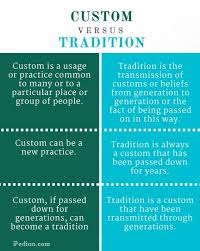Exploring the Enriching Culture of Armenia
The Rich and Diverse Culture of Armenia
Armenia, a country nestled in the Caucasus region between Europe and Asia, boasts a culture that is as ancient as it is vibrant. From its captivating folk music to its intricate traditional dances, Armenia’s cultural heritage is a tapestry of influences that have shaped the nation over millennia.
Music and Dance
Music and dance are integral parts of Armenian culture, with roots dating back to prehistoric times. Traditional Armenian music often features haunting melodies played on instruments like the duduk, a double-reed woodwind instrument considered the national instrument of Armenia. Meanwhile, Armenian dance forms such as Kochari and Tamzara showcase the grace and precision that are hallmarks of Armenian folk dancing.
Art and Architecture
The art and architecture of Armenia reflect the country’s rich history and diverse influences. From ancient monasteries like Tatev Monastery perched on mountain cliffs to the modernist designs found in Yerevan, Armenia’s capital city, the country’s architectural landscape is a testament to its enduring artistic legacy.
Cuisine
Armenian cuisine is a celebration of flavour and tradition. Dishes like khorovats (barbecue), dolma (stuffed grape leaves), and lavash (flatbread) are staples of Armenian cooking, showcasing the country’s love for fresh ingredients and bold spices. Meals in Armenia are often shared with family and friends, underscoring the importance of community in Armenian culture.
Language and Literature
The Armenian language is one of the oldest in the world, with a rich literary tradition that dates back to the fifth century. Works by renowned Armenian poets such as Hovhannes Shiraz and Paruyr Sevak continue to inspire readers with their evocative verses that capture the essence of Armenian identity.
In conclusion, Armenia’s culture is a treasure trove of artistry, history, and tradition that continues to captivate people around the world. With its unique blend of influences from East and West, Armenia stands as a testament to the enduring power of cultural heritage.
Exploring Armenian Culture: Hospitality, Cuisine, History, Religion, and Music
- Armenians are known for their strong sense of hospitality and generosity towards guests.
- Traditional Armenian cuisine is rich in flavour and includes dishes like dolma, khorovats (barbecue), and lavash (flatbread).
- Armenia has a long history dating back to ancient times, with many historical sites and landmarks to explore.
- The Armenian Apostolic Church plays a significant role in the country’s culture and heritage.
- Traditional Armenian music and dance are important aspects of the cultural identity, with instruments like the duduk being widely used.
Armenians are known for their strong sense of hospitality and generosity towards guests.
Armenians are renowned for their unwavering commitment to hospitality and generosity when welcoming guests. It is ingrained in Armenian culture to treat visitors with warmth and kindness, often going above and beyond to ensure their comfort and well-being. This tradition of hospitality reflects the deep-rooted values of community, respect, and camaraderie that are integral to Armenian society. Whether inviting guests into their homes for a meal or offering a helping hand to strangers in need, Armenians exemplify the spirit of hospitality in all aspects of their lives.
Traditional Armenian cuisine is rich in flavour and includes dishes like dolma, khorovats (barbecue), and lavash (flatbread).
Traditional Armenian cuisine is a culinary delight that tantalizes the taste buds with its rich flavours and diverse offerings. From the succulent dolma, stuffed grape leaves bursting with savoury goodness, to the mouth-watering khorovats, a barbecue dish that sizzles with aromatic spices, and the comforting lavash, a soft and versatile flatbread that accompanies many meals – Armenian cuisine is a true reflection of the country’s vibrant culinary heritage.
Armenia has a long history dating back to ancient times, with many historical sites and landmarks to explore.
Armenia, steeped in a rich cultural heritage dating back to ancient times, offers a captivating journey through history with its abundance of historical sites and landmarks waiting to be explored. From ancient monasteries perched on rugged cliffs to majestic fortresses that stand as testaments to Armenia’s past, each site tells a story of the nation’s enduring legacy and the diverse influences that have shaped its identity over the centuries.
The Armenian Apostolic Church plays a significant role in the country’s culture and heritage.
The Armenian Apostolic Church holds a pivotal position in shaping Armenia’s culture and heritage. As one of the oldest national churches in the world, it serves as a cornerstone of Armenian identity, influencing various aspects of daily life, celebrations, and traditions. The church’s rich history, religious practices, and architectural marvels not only reflect the spiritual beliefs of the Armenian people but also contribute to the preservation and promotion of their cultural heritage through generations.
Traditional Armenian music and dance are important aspects of the cultural identity, with instruments like the duduk being widely used.
Traditional Armenian music and dance play a significant role in shaping the cultural identity of Armenia. The haunting melodies of instruments like the duduk hold a special place in the hearts of Armenians, evoking a sense of nostalgia and pride. These art forms not only showcase the country’s rich heritage but also serve as a means of preserving age-old traditions and connecting generations through music and movement.



